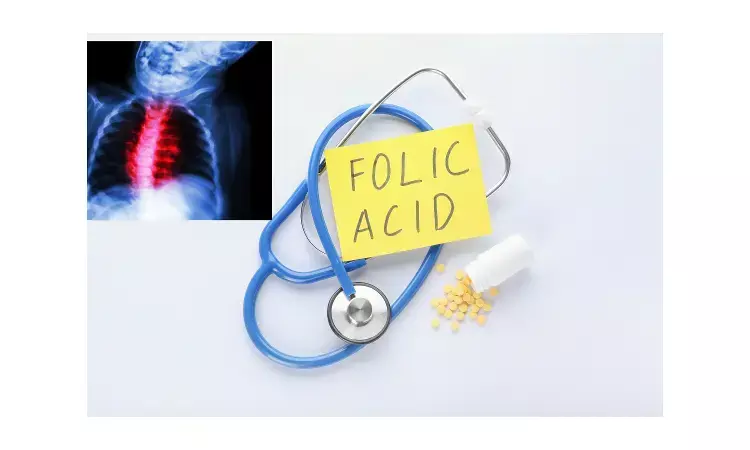- Home
- Medical news & Guidelines
- Anesthesiology
- Cardiology and CTVS
- Critical Care
- Dentistry
- Dermatology
- Diabetes and Endocrinology
- ENT
- Gastroenterology
- Medicine
- Nephrology
- Neurology
- Obstretics-Gynaecology
- Oncology
- Ophthalmology
- Orthopaedics
- Pediatrics-Neonatology
- Psychiatry
- Pulmonology
- Radiology
- Surgery
- Urology
- Laboratory Medicine
- Diet
- Nursing
- Paramedical
- Physiotherapy
- Health news
- Fact Check
- Bone Health Fact Check
- Brain Health Fact Check
- Cancer Related Fact Check
- Child Care Fact Check
- Dental and oral health fact check
- Diabetes and metabolic health fact check
- Diet and Nutrition Fact Check
- Eye and ENT Care Fact Check
- Fitness fact check
- Gut health fact check
- Heart health fact check
- Kidney health fact check
- Medical education fact check
- Men's health fact check
- Respiratory fact check
- Skin and hair care fact check
- Vaccine and Immunization fact check
- Women's health fact check
- AYUSH
- State News
- Andaman and Nicobar Islands
- Andhra Pradesh
- Arunachal Pradesh
- Assam
- Bihar
- Chandigarh
- Chattisgarh
- Dadra and Nagar Haveli
- Daman and Diu
- Delhi
- Goa
- Gujarat
- Haryana
- Himachal Pradesh
- Jammu & Kashmir
- Jharkhand
- Karnataka
- Kerala
- Ladakh
- Lakshadweep
- Madhya Pradesh
- Maharashtra
- Manipur
- Meghalaya
- Mizoram
- Nagaland
- Odisha
- Puducherry
- Punjab
- Rajasthan
- Sikkim
- Tamil Nadu
- Telangana
- Tripura
- Uttar Pradesh
- Uttrakhand
- West Bengal
- Medical Education
- Industry
Folic acid supplements during preconception reduce congenital heart defects in offsprings: Study

A new WHO report shows that preconception care has a positive impact on maternal and child health outcomes.
A new study by Dr Di Wang, BM and team reported that Maternal periconceptional supplementation with Folic Acid (FA) or Multiple Micronutrients with Folic Acid (MMFA) appears to reduce the risk for Congenital Heart Defects (CHDs), especially critical CHD, in offspring.
This study is published in The Journal of Pediatrics.
The objective of the study was to determine the effects of maternal periconceptional supplementation with FA or MMFA on the prevention of fetal congenital heart defects (CHDs).
The study was survey were the Data was drawn from a Prenatal Health Care System and a Birth Defects Surveillance System in a district of Beijing, China. A total of 63,969 singleton births, live or stillborn, 308 CHDs among them, during 2013 to 2018 were included. Associations between different patterns of supplementation and risk for total CHDs or main types of CHDs were evaluated with risk ratios (RRs).
The results of the study were
• The survey found FA or MMFA users compared with nonusers, the adjusted risk ratios (ARRs) for total CHDs, critical CHD.
• Ventricular Septal Defect (VSD) were 0.60 (95% confidence interval [CI]: 0.44-0.83), 0.41 (95%CI: 0.26-0.67), and 0.47 (95%CI: 0.30-0.74).
• When compared MMFA users with FA users, they found the ARRs were 0.84 (95%CI: 0.66-1.09), 0.64 (95%CI: 0.41-1.00), and 0.94 (95%-CI: 0.63-1.41) for total CHDs, critical CHD, and VSD.
• Comparative survey with supplementation initiated after conception, supplementation initiated before conception was associated with a lower risk for CHDs: the ARRs were 0.68 (95%CI: 0.48-0.95) for total CHDs and 0.26 (95%CI: 0.10-0.71) for critical CHD but 1.08 (95%CI: 0.63-1.83) for VSD.
Dr Wang, and team concluded that "Maternal periconceptional supplementation with Folic Acid or MMFA appears to reduce the risk for Congenital Heart Defects (CHDs), especially critical CHD, in offspring. " they also added that "Supplementation confers a greater protective effect when it is initiated before conception. We did not find any difference between FA and MMFA in terms of preventing CHDs."
For further information: https://doi.org/10.1016/j.jpeds.2021.09.004
Medical Dialogues consists of a team of passionate medical/scientific writers, led by doctors and healthcare researchers. Our team efforts to bring you updated and timely news about the important happenings of the medical and healthcare sector. Our editorial team can be reached at editorial@medicaldialogues.in.
Dr Kamal Kant Kohli-MBBS, DTCD- a chest specialist with more than 30 years of practice and a flair for writing clinical articles, Dr Kamal Kant Kohli joined Medical Dialogues as a Chief Editor of Medical News. Besides writing articles, as an editor, he proofreads and verifies all the medical content published on Medical Dialogues including those coming from journals, studies,medical conferences,guidelines etc. Email: drkohli@medicaldialogues.in. Contact no. 011-43720751


